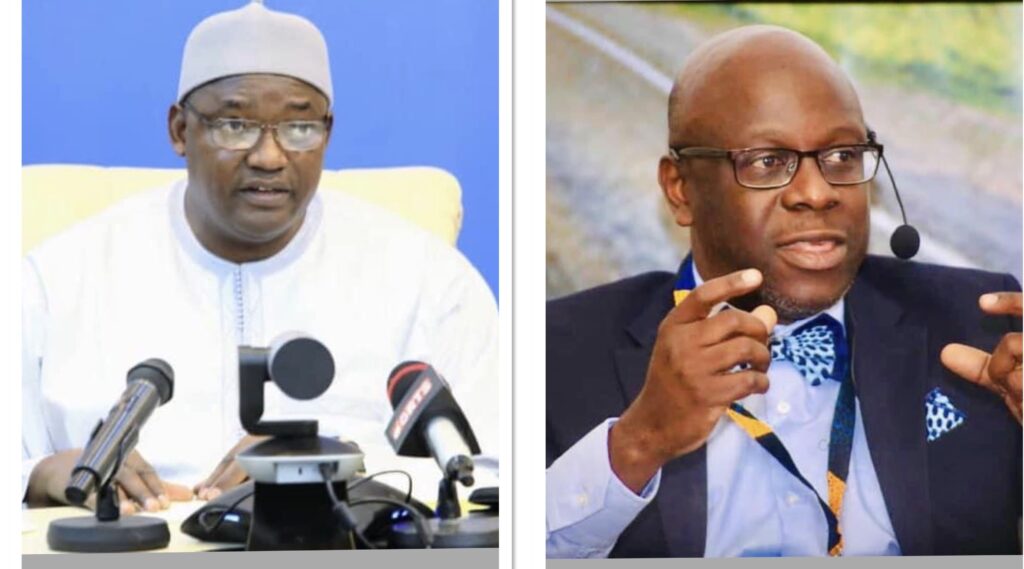
The Gambia Bar Association says President Adama Barrow’s declaration of state of emergency is “unconstitutional”.
President Barrow on Tuesday extended the public state of emergency by seven days.
However Salieu Taal President of Gambia Bar Association said the declaration was not “consistent with the dictates of the constitution”.
Mr Taal said: “Section 34(1) of the Constitution Of The Republic of The Gambia gives the President of the Republic the exclusive power to declare a State of Public Emergency but limits the exercise of this power under section 34(2) by prescribing that a State of Public Emergency shall lapse after seven (7) days or if the National Assembly is not in session after twenty-one (21) days.
“Under the aforementioned provision, the duration of the State of Public Emergency can only be extended if prior to its expiration, a resolution is tabled and approved by two–thirds of the National Assembly Members.
“The Constitution therefore subjects the exercise of the Presidential Powers to declare a State of Public Emergency to National Assembly oversight and scrutiny by prescribing the duration of any such declaration made by the President.
“It is important to note that whilst the President of the Republic has the power to declare a State of Public Emergency in accordance with section 34, the Constitutional power to extend a State of Emergency is vested exclusively on the National Assembly.
“This is unequivocally provided under Section 34(2) of the Constitution.”
“Against this background, it is of our view that the Declaration of State of Public Emergency pursuant to Section 34(6) of the Constitution on the 10th June, 1st July and 7th July without recourse to the National Assembly is not consistent with the dictates of the Constitution.
“The purported declarations by the President of the Republic are in essence extensions of the existing State of Public Emergency already declared on 18th March 2020 and 26th March 2020 respectively which were subsequently extended by the National Assembly.
“It is our view that section 34(6) does not give the President the unfettered power or a carte blanche to declare a State of Public Emergency consecutively based on the same emergency (here the COVID-19) thereby circumventing parliamentary scrutiny and oversight, which is an essential check on the exercise of such emergency powers.
“The right and proper course of action was for the Executive to table a motion to extend the State of Emergency before the National Assembly.
“This is in line with the spirit and substance of the Constitution, which is the supreme law of this country.
“Whilst we take note that wording and literal interpretation of section 34(6) purports to give the President the power to make further declarations under the provision, such a view is manifestly absurd in a democracy as it will in effect render the powers given to the National Assembly under section 34(2) nugatory or redundant to say the least.
“Furthermore such interpretation is tantamount to giving the President unfettered powers to declare a State of Emergency without any oversight and check by the National Assembly.
“In other words, if the President under 34(6) can declare a State of Public Emergency ad finitum without reverting to the National Assembly then this begs the question “What is the role of the National Assembly as envisaged and provided for under Section 34 (2) of the Constitution? Does it mean that the President can keep on declaring SOPE in perpetuity?
“It is our view that the declaration of a State of Public Emergency consecutively by the President on the 19th May 2020, 10th June 2020, 1st July 2020 and 7th July 2020 is in effect a usurpation of the powers granted to the National Assembly and is a dangerous precedent for our democracy.”
Reporting by Adama Makasuba










Recent Comments